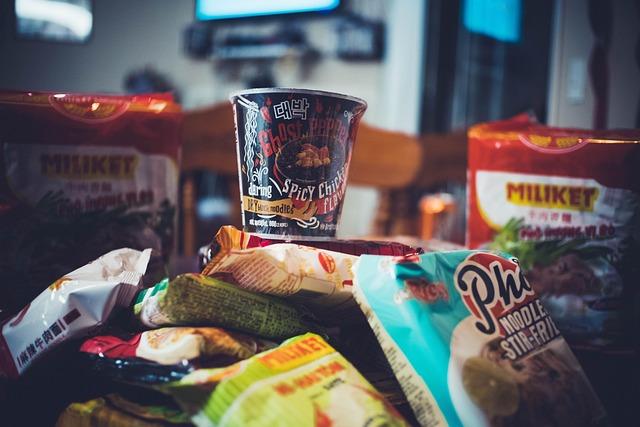Hidden Dangers in Your Pantry: Food Brands Recalled After Safety Failures
Multiple popular food brands have just been recalled due to dangerous contamination risks and undeclared allergens. From frozen snacks to everyday pantry items, you might be affected. Learn which products to avoid, how to check your labels, and what to do next.

Which popular food brands have been recently recalled?
Several well-known food brands have faced recalls due to safety concerns. Some of the most notable recent recalls include:
-
Quaker Oats: Various granola bars and cereals were recalled due to potential Salmonella contamination.
-
Trader Joe’s: Multiple products, including cookies and frozen meals, were recalled for undeclared allergens and potential foreign material contamination.
-
Tyson Foods: Certain chicken products were recalled due to possible Listeria contamination.
-
Kraft Heinz: Some Kraft Singles American cheese slices were recalled for potential choking hazards.
-
Dole: Various salad kits were recalled due to possible Listeria contamination.
It’s crucial to note that this list is not exhaustive, and recalls are announced regularly. Consumers should stay vigilant and check for updates from reliable sources.
What are the common reasons for food product recalls?
Food product recalls typically occur for several reasons:
-
Microbial contamination: Presence of harmful bacteria like Salmonella, E. coli, or Listeria.
-
Undeclared allergens: Failure to list common allergens on product labels.
-
Foreign material contamination: Presence of non-food items like plastic, metal, or glass.
-
Mislabeling: Incorrect information on packaging or nutritional facts.
-
Chemical contamination: Presence of harmful chemicals or toxins.
-
Processing errors: Issues during manufacturing that compromise food safety.
Understanding these reasons can help consumers be more aware of potential risks and make informed decisions about their food purchases.
How can you check if a product in your pantry has been recalled?
To determine if a product in your pantry has been recalled, follow these steps:
-
Check the product’s brand name, UPC code, and lot number.
-
Visit the FDA’s recall website or the USDA’s Food Safety and Inspection Service website for the latest recall information.
-
Search for the product name or brand on these websites.
-
Compare the UPC code and lot number of your product with the recalled items.
-
Sign up for email alerts from food safety agencies to stay informed about new recalls.
-
Follow trusted news sources and food safety organizations on social media for real-time updates.
Regular checks and staying informed can help you identify potentially dangerous products in your home quickly.
What should you do if you’ve purchased a recalled food item?
If you discover that you’ve purchased a recalled food item, take the following actions:
-
Do not consume the product under any circumstances.
-
Check the recall notice for specific instructions on what to do with the item.
-
In most cases, you should return the product to the place of purchase for a full refund.
-
If you’ve already consumed the product, monitor yourself for any symptoms associated with the recall reason (e.g., food poisoning symptoms for bacterial contamination).
-
Contact your healthcare provider if you experience any adverse effects.
-
Keep the product packaging and receipt if possible, as they may be needed for the refund process or in case of illness.
Taking these steps can help protect your health and ensure you receive proper compensation for the recalled item.
How can consumers report suspected food safety issues?
In the United States, consumers play a crucial role in identifying potential food safety issues. Here’s how you can report suspected problems:
-
Contact the FDA’s Consumer Complaint Coordinator for your state if the product is regulated by the FDA.
-
Use the USDA’s Electronic Consumer Complaint Monitoring System for meat, poultry, or egg products.
-
Report to your local health department if the issue is related to a restaurant or food service establishment.
-
Provide detailed information about the product, including brand name, package size, lot number, and where and when it was purchased.
-
Describe the problem you encountered and any adverse reactions experienced.
-
Keep the product packaging and any remaining product for potential investigation.
By reporting suspected issues, consumers contribute to the overall safety of the food supply and help prevent others from potential harm.
What are the latest updates on food recall warnings?
The landscape of food recalls is constantly evolving, with new warnings issued regularly. As of the most recent updates:
-
The FDA has strengthened its food traceability requirements to improve the speed and efficiency of recalls.
-
There’s an increased focus on allergen-related recalls, with stricter labeling requirements being implemented.
-
The use of whole genome sequencing technology has enhanced the ability to detect and trace foodborne pathogens.
-
Recalls related to undeclared allergens continue to be one of the most common types of food recalls.
-
There’s a growing trend of voluntary recalls initiated by companies before regulatory action becomes necessary.
To stay current with the latest food recall warnings, consumers should regularly check official food safety websites and sign up for alerts from relevant agencies.
In conclusion, staying informed about food recalls and understanding how to respond to them is crucial for maintaining a safe and healthy pantry. By being proactive in checking for recalls, properly handling recalled items, and reporting suspected issues, consumers can play an active role in food safety. Remember that food recalls are a normal part of our food safety system, designed to protect public health, and staying vigilant is key to avoiding potential health risks associated with contaminated or mislabeled products.
This article is for informational purposes only and should not be considered medical advice. Please consult a qualified healthcare professional for personalized guidance and treatment.




